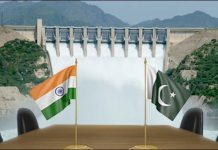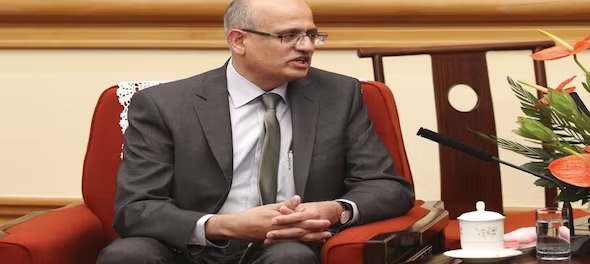India needs to carefully watch developments in the Taiwan Strait as it was and remains the most dangerous conflict point in the Indo-Pacific. India’s Former Foreign Secretary Vijay Gokhale has said that any friction in the Taiwan Strait will have major implications for the Indian economy.
“US and China are directly involved in the Taiwan Strait. India had involved itself in the previous two crises in the Taiwan Strait in 1954 and 1958 and what happens there is very much India’s business today because of the economic implications,” Gokhale told.
“Any friction, not just a conflict but even a quarantine or blockade will have direct implications for the Indian economy,” he said.
Just for context, more than 30% of India’s trade in goods flows through the South China Sea and any disruption in the Taiwan Strait would directly hurt India.
Gokhale writes about how India may have made a critical strategic mistake by being one of the first countries to recognise the new Communist government in China. Despite the advice of Cabinet colleagues like Sardar Patel, Jawaharlal Nehru went ahead to recognise the new government in 1949, as he believed that India and China had age-old relations and could work together for each other’s benefit.
Gokhale explains that this was a mistake as India agreed to recognise the Communist regime without seeking guarantees on past India-China agreements. China never reciprocated India’s sentiments and relations started deteriorating after 1950.
“India was not clear about its objectives in dealing with the new Communist government in China. China never gave India an equal status, and always treated India as a subsidiary power. China never felt it had to accommodate India’s concerns. There were pointers in 1950, which should have led us to identify the gaps, but we did not do that,” he said.
He also noted how the Americans had advised India to at least seek guarantees on agreements signed with the previous nationalist government before the communists came to power in 1949.
The former foreign secretary said that the India-China clash in Galwan in June 2020 was a major turning point in the relationship between the countries. Since then, both nations have been in a state of armed coexistence.
India also began exercising a policy of military deterrence. Gokhale, in his book, noted that dialogue and deterrence are the only way forward for India on China. “We need to have a direct bilateral dialogue with China on the boundary dispute. Any dispute can only be resolved through dialogue,” he said.
Reacting to reports of the bankruptcy of China’s real estate giant Evergrande, Gokhale said that the episode reflects that China would no longer see infrastructure-led growth. While there was no clear path to stimulating domestic consumption in China, it would be wrong to term this slowdown as a collapse of the Chinese economy.
“China is a 16 trillion dollar manufacturing economy and will remain a major economic engine even with a 2% annual growth rate,” he said.
The former diplomat and Ambassador to China also said that it was natural for China to take advantage of the tense world order due to conflicts in Europe and the Middle East. He, however, pointed out that while India by responding to distress calls from merchant vessels in the Red Sea had shown an inclination to restore peace China had not shown any such inclination.







































